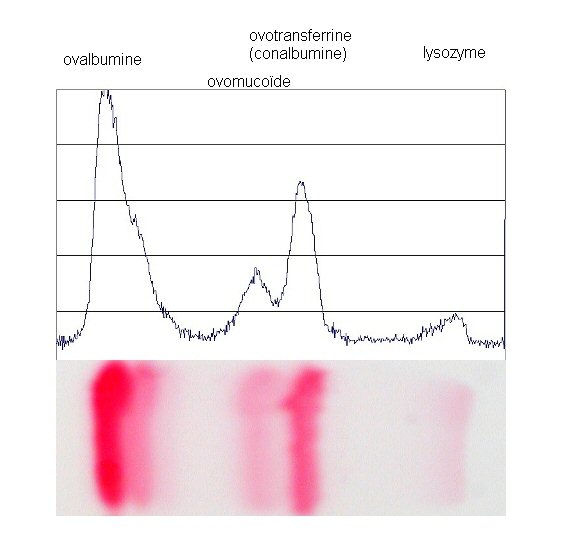Indications:
Simple and inexpensive way, this review allows to know the blood composition protide, mainly albumin and globulins.
Principle:
Albumin is preferentially secreted by the liver, and globulins, by lymphocytes: the dose is therefore a good way to assess the operation of these two sources of production.
Placed in a basic medium and in an electric field, proteins migrate according to their electric charge can thus be separated.
 Technique:
Technique:
Sampling 5 mL of venous blood in a dry tube.
dose is at the same time the hematocrit.
Results:
Cellulose acetate strip placed in the electric field, the proteinic stains are highlighted by a dye.
Normal values:
– Adults: total protein: 60 to 80 g / L:
– Albumin 35 to 50 g / L (conversion: gx = 1.45 micromol), 60%.
– Α-1 globulin: 1.5 to 3.5 g / L or 4%,
– Α-2 globulin: 3-9 g / L, or 8%
– Β-globulin: 6-12 g / L, or 12%
– Γ-globulin 7.5 g to 16 g / L, 16%,
– In children: total protein: 45 to 70 g / L at birth; they join the 3 years to adult rates.
Pathological changes:
– Hypoalbuminemia is a sign of:
– Undernutrition,
– Hepatic cirrhosis,
– nephrotic syndrome,
– Intestinal malabsorption, chronic diarrhea,
– Right heart failure,
– Inflammation (increased α-1 and β-2 above);
– Hypergammaglobulinemia is a sign of:
– Infection or parasitic disease in the long term,
– Autoimmune disease, LED,
– Chronic liver disease: hepatitis (increased β and γ)
– Monoclonal lymphocytic reached with narrowband (myeloma): interest in cases of immuno to recover the increased GI;
– Hypergammaglobulinemia, rare but serious, can be:
– Congenital,
– Due to liver damage or acute lymphocytic reached.
Cost:
B60.
Practical advice:
Engaging in parallel dosing hematocrit retrieves hemoconcentration or hemodilution that can skew results; the hematocrit then resets a possible misinterpretation.

Leave a Reply